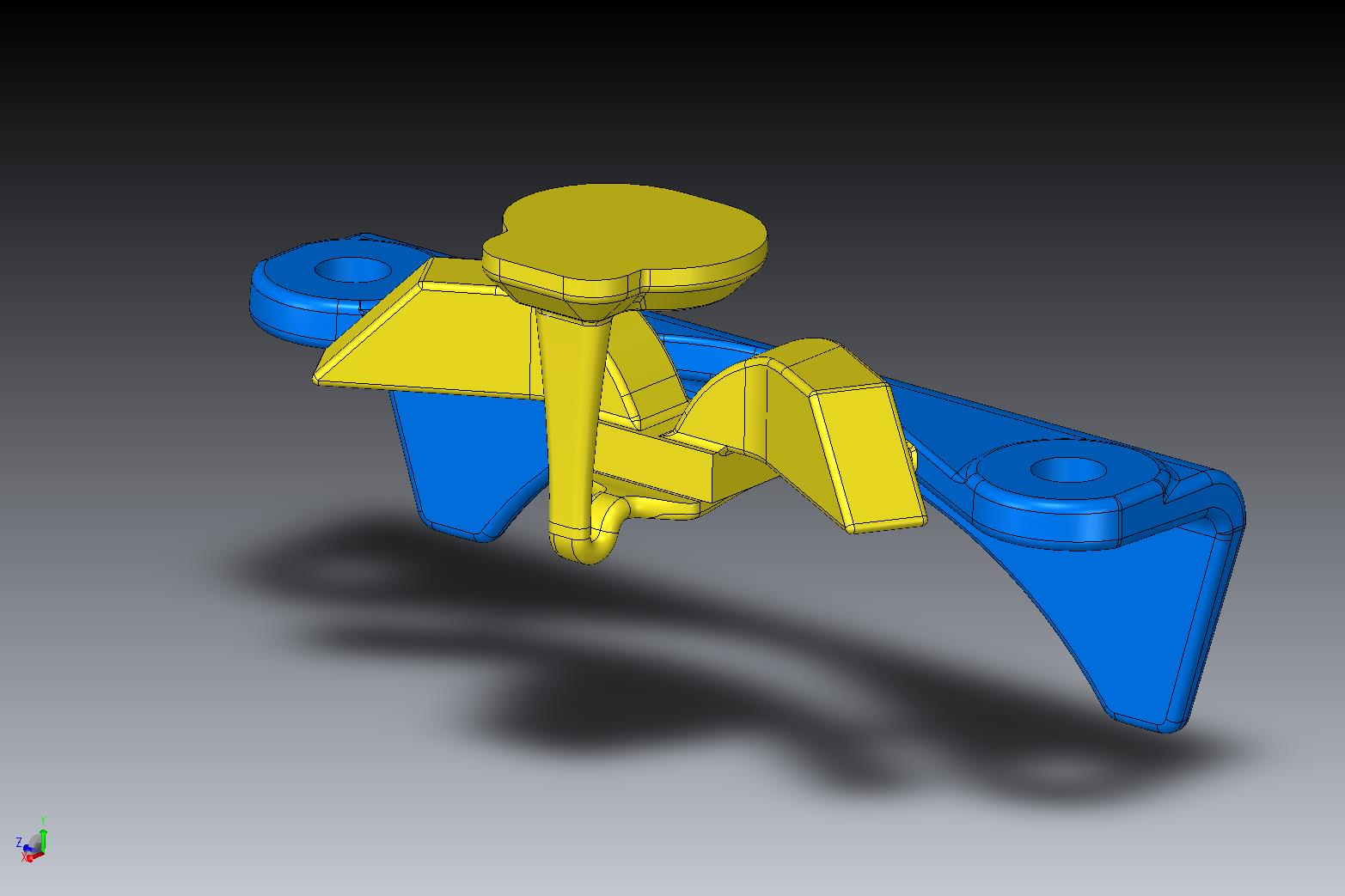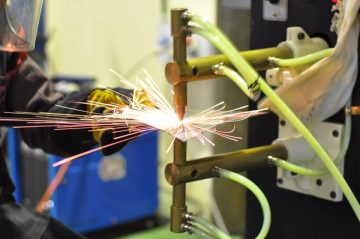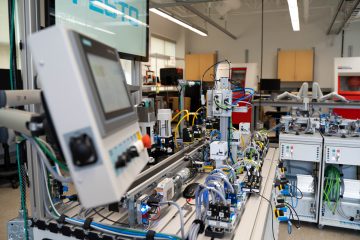 The Projects-to-Classrooms (P2C) program employs UBCO Engineering undergraduate students to work on real-world/industry projects under the supervision of a faculty member. These projects are then integrated into undergraduate courses as case studies, course projects, or labs. Engagement with local industry is encouraged at all stages of the work term. The goals of the program are to:
The Projects-to-Classrooms (P2C) program employs UBCO Engineering undergraduate students to work on real-world/industry projects under the supervision of a faculty member. These projects are then integrated into undergraduate courses as case studies, course projects, or labs. Engagement with local industry is encouraged at all stages of the work term. The goals of the program are to:
• Enhance the undergraduate student experience by giving students an opportunity to solve real-world engineering problems through application-driven case studies;
• Support instructors who would like to integrate more project-based learning into their courses;
• Maximize the use of existing lab infrastructure and support project-based learning;
• Create and strengthen relationships with local industry through engagement and sponsorship;
• Establish a formal mechanism for industry to provide input into undergraduate student training;
• Continually improve and keep the undergraduate engineering program relevant.
Work terms pay between $15.20-$18/hour. The number of hours depends on the project, up to 170 hours.
APPLY HERE
For more information, please contact Dr. Dean Richert (dean.richert@ubc.ca)
The following projects have been accepted for the program, and will start as early as May, 2022:
+ Operations and Supply Chain Management in Manufacturing Engineering
Nowadays, the optimization of sustainable supply chain networks has received growing attention. A general structure of supply chain networks includes multiple facilities, such as suppliers, manufacturers, distribution centers, retailers, and customer zones. There are different decision-making problems in supply chain management in terms of strategic, tactical and operational aspects, such as production planning and inventory management under uncertainty, estimating market demand, and facility location design. In this project, we focus on the identification of appropriate strategies that must be considered when designing, planning, or operating a supply chain network.
Faculty supervisor: Dr. Babak Tosarkani (babak.tosarkani@ubc.ca)
Year level: This project is open for students in any year.
+ Manufacturing processes design software internship (POSITION FILLED)
The focus of this position is to become an expert user of the Transvalor suite and assist in integrating the capabilities of the software in teaching engineering courses related to design and manufacturing. The Transvalor suite includes several 3D design packages that are based on the finite element method. For the purposes of this position, the most important programs are Thercast and Forge. It is expected that the intern will consult with the faculty supervisor as well as the graduate students of the High Performance Powertrain Materials (HPPM) laboratory on the software usage, selection and hands-on validation of the thermomechanical properties of materials, and boundary conditions for various industrial casting and forming processes.
Faculty supervisor: Dr. Dimitry Sediako (dimitry.sediako@ubc.ca)
Year level: This project is open for students entering their 4th year or higher.
The following projects have completed:
+ Development of resistance spot weld process maps for automotive applications
Resistance spot welding (RSW) is essential to the automotive industry; a typical vehicle contains hundreds to thousand of spot welds. However, there are many factors that can influence the quality of a weld. In this project/lab, students will develop a processing map (weldability lobe) for the main RSW parameters (current, weld time, pressure) that result in welds of suitable size. After establishing the processing map, students will explore the concept of current shunting in RSW. Students will calculate the minimum number of welds of a given size required to resist a specified load that could be experienced in an automotive component, and then experimentally determine the minimum spacing between spot welds without reducing the spot weld size.
Faculty supervisor: Dr. Michael Benoit (michael.benoit@ubc.ca)
Year level: This project is open for students in any year.
+ CNC machining of 3D solid models and surface models
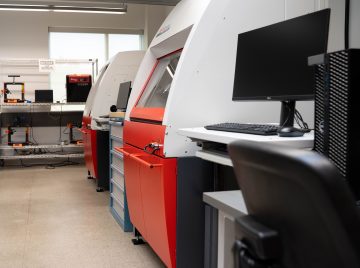 The students will develop 3D solid and surface models (Dies and molds) and will generate different CNC machining strategies to optimize the machining time. They will machine these models on existing EMCO machines and also will develop the codes for the HAAS machines. They will also explore the built-in CANNED cycles to machine these models to fully explore the capabilities of CNC machines. The outcomes of this project will include teaching manuals and standard operating procedures (SOP) of the machining process.
The students will develop 3D solid and surface models (Dies and molds) and will generate different CNC machining strategies to optimize the machining time. They will machine these models on existing EMCO machines and also will develop the codes for the HAAS machines. They will also explore the built-in CANNED cycles to machine these models to fully explore the capabilities of CNC machines. The outcomes of this project will include teaching manuals and standard operating procedures (SOP) of the machining process.
Faculty supervisor: Dr. Hassan Iqbal (hassan.iqbal@ubc.ca)
Year level: This project is open for students in their 3rd or 4th year.
+ Sheetmetal and plastic molding design optimization
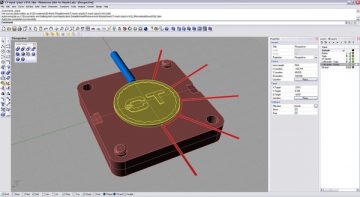 The students will develop sheet metal blanking and bending dies and plastic injection mold. They will analyze the design by using simulation on the Transvalor software suite and SolidWorks injection molding addon. They will explore the maximum capabilities of the simulation software. The project will include the basic simulation of manufacturing processes and the design optimization of sheet metal blanking and bending dies and plastic injection mold.
The students will develop sheet metal blanking and bending dies and plastic injection mold. They will analyze the design by using simulation on the Transvalor software suite and SolidWorks injection molding addon. They will explore the maximum capabilities of the simulation software. The project will include the basic simulation of manufacturing processes and the design optimization of sheet metal blanking and bending dies and plastic injection mold.
Faculty supervisor: Dr. Hassan Iqbal (hassan.iqbal@ubc.ca)
Year level: This project is open for students in their 3rd or 4th year.
+ Advance metrology and laser scanning to CAD modeling
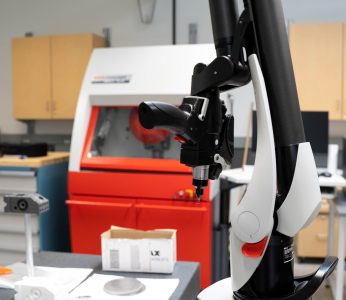 The students will measure machined parts by using a coordinate measuring machine (CMM) and also scan the machined surfaces using a CMM. They will explore the full functionality of the CMM as both a metrology tool and a scanning tool.
The students will measure machined parts by using a coordinate measuring machine (CMM) and also scan the machined surfaces using a CMM. They will explore the full functionality of the CMM as both a metrology tool and a scanning tool.
Faculty supervisor: Dr. Hassan Iqbal (hassan.iqbal@ubc.ca)
Year level: This project is open for students in their 3rd or 4th year.
+ Data science for industrial automation systems
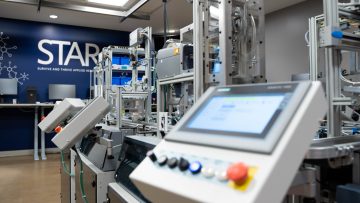 The development of alarm systems for process automation. In-depth design and development of an alarm system will be addressed for the cyber-physical (CP) lab platform, where programmable logic controller (PLC) and human-machine interface (HMI) programming will be implemented.
The development of alarm systems for process automation. In-depth design and development of an alarm system will be addressed for the cyber-physical (CP) lab platform, where programmable logic controller (PLC) and human-machine interface (HMI) programming will be implemented.
The use of machine learning in process automation. Process data will be generated using the cyber-physical (CP) lab platform, and suitable machine learning algorithms will be compared and applied (e.g., reinforcement learning).
Faculty supervisor: Dr. Ahmad Al-Dabbagh (ahmad.aldabbagh@ubc.ca)
Year level: This project is open for students in their 2nd year.

